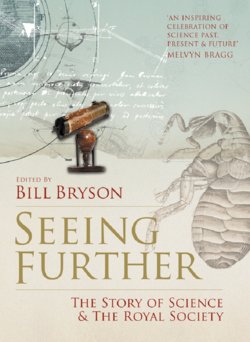Читать книгу Seeing Further: The Story of Science and the Royal Society - Билл Брайсон, Bill Bryson - Страница 12
SPACE AND SELF
ОглавлениеIn discussions about science and religion it is often noted how corrosive a mechanistic philosophy was to the Christian idea of a soul; what is not widely understood is how important a role our conception of space has played in this story. Eighteenth-century natural philosophy was premised on a neutral, homogeneous, infinite and passive space. The very qualities of Euclid’s ideal that made it such a fruitful foundation for the development of physical science are just the qualities that have become so problematic for those who wish to assert the reality of a ‘spiritual’ plane of being. For medieval Christians, a dualistic conception of the human person went hand in hand with a dualistic spatial scheme; with the advent of a purely physicalist world picture it has become increasingly difficult to argue for the reality of any kind of non-physical dimension to human existence.
Christians are not the only ones who might be troubled by this development. Secularists can be concerned too, for the equation of physical space with the totality of ‘reality’ also problematises the idea of a human self. What does it mean to say that the self exists if we cannot locate it on a map? In talks I give about this subject I am sometimes asked during question time to ‘prove that the self exists’. It is always a young man who makes this demand and he is usually a student of physics or philosophy. He is well read and he means his question in earnest. He does not believe that the self exists and he wants me to prove it does. At first I was puzzled by this demand, then I realised how I should answer: If the self does not exist, I say, then his self doesn’t, so I shall move right along to a question from someone who does. I assume there are some selves in the room who do exist.
But are there? In the mathematically defined space of modern cosmology do any of us exist?
